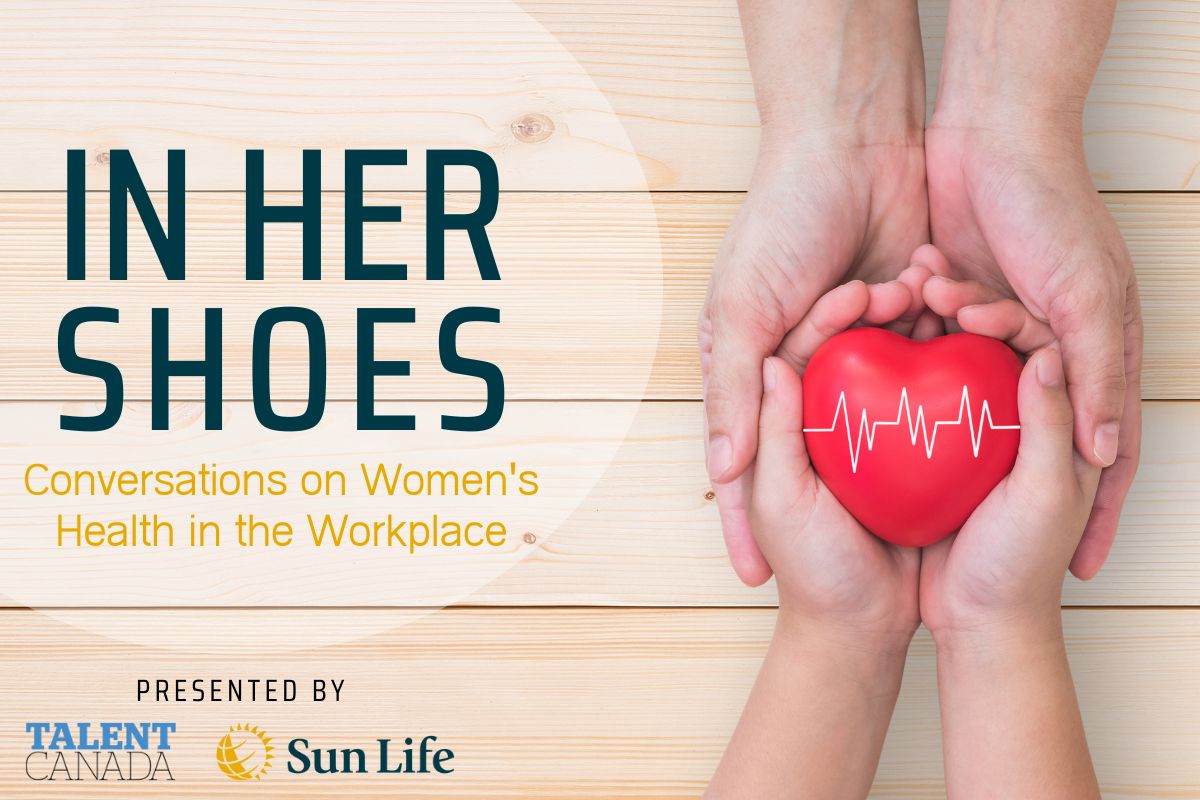

Features
Benefits & Pensions
Employee Wellness
Menopause, cardiovascular disease, mental health among top concerns for working women
September 12, 2023
By
Todd Humber

Editor’s note: This is the second in a multi-part series tackling women’s health issues in the workplace and what employers, HR and leaders can do to make a difference. It’s based on a special roundtable conversation held by Talent Canada, in partnership with Sun Life, that took a deep dive into the issue. View the special section.
In a recent panel discussion, held by Talent Canada in partnership with Sun Life, experts weighed in on the most pressing health concerns for women in the workplace, which range from menopause and cardiovascular disease to mental health and the lack of female-focused medical research.
These issues have profound implications not just for women, but for the workplaces that depend on them.
A misunderstood milestone: Menopause
Janet Ko, president and co-founder of the Menopause Foundation of Canada, argued that women in menopause are a “very fast-growing segment of the workforce” that warrant greater understanding and recognition.
“Just think about the number of women in our country over the age of 40,” she said. “That’s 10 million women. We represent one-quarter of the population, and we represent one-quarter of the workforce.”
And there are a lot of myths and misconceptions around menopause. For example, it’s not a singular event but a continuum.
“Women will spend up to half of their life in the menopause continuum,” said Ko. “People think that menopause is something you reach, like a destination, an event — and then it’s over. That’s a big myth.”
Watch the video
The reality is that women will spend up to half of their life in the menopause continuum, she said.
The average age for reaching menopause in Canada is 51, and it occurs after a woman has been period-free for 12 months, she said. However, the perimenopause phase can last for two to 10 years prior, and post-menopause is a lifelong condition. Notably, menopausal and postmenopausal women are at increased risk for heart disease, osteoporosis, and genital-urinary syndrome of menopause, said Ko.
According to Ko, this all-encompassing issue is “shrouded in secrecy and stigma,” affecting not just women’s health but also their families, communities, and workplaces.
“It feels like such a taboo topic,” she said. “It’s a mystery that every woman is left to unravel on her own.”
Cardiovascular, mental health also leading concerns
Carmen Klein, vice-president of HR and change management at Cadillac Fairview, emphasized the risk of cardiovascular disease, which she called the leading cause of premature death for women.
“We’ve seen some cases of that, and it’s devastating for an organization,” she said.
Tiana Field-Ridley, senior program manager at the Mental Health Commission of Canada, pointed out that while women face unique health challenges, they also share many concerns with men, particularly when it comes to mental health.
“There’s so much stuff with mental health where there’s anxiety, depression. There’s so many different factors, and I think women have unique differences,” said Field-Ridley. “But they also have very similar challenges as well with any other gender.”
Lack of female-focused research
Krista Hogan, director, product solutions at Sun Life, mentioned a critical issue that often goes unaddressed: the lack of female-based research, which delays or even prevents adequate treatment for women.
For example, females are diagnosed with chronic disease on average two years later than males.
“Females experience 75% of the adverse drug reactions in Canada,” said Hogan, attributing this largely to underrepresentation in clinical trials.
The legal perspective
Stuart Rudner, an employment lawyer and mediator and founder of Rudner Law, who often sees legal disputes related to workplace health issues, noted a rising trend in cases concerning stress, anxiety, and depression among women.
“Those are the issues that exist that are causing there to be some sort of legal dispute or investigation,” said Rudner, adding that these issues have been more frequent among women in recent years.
Print this page